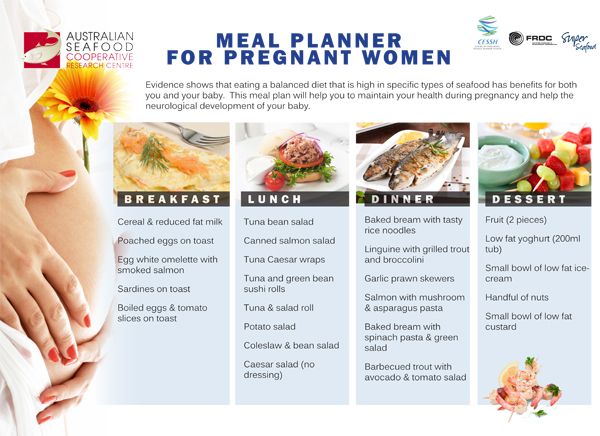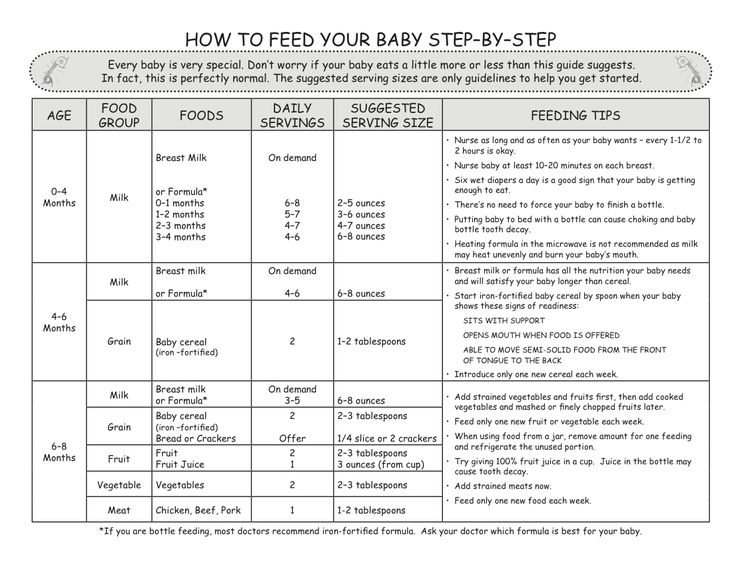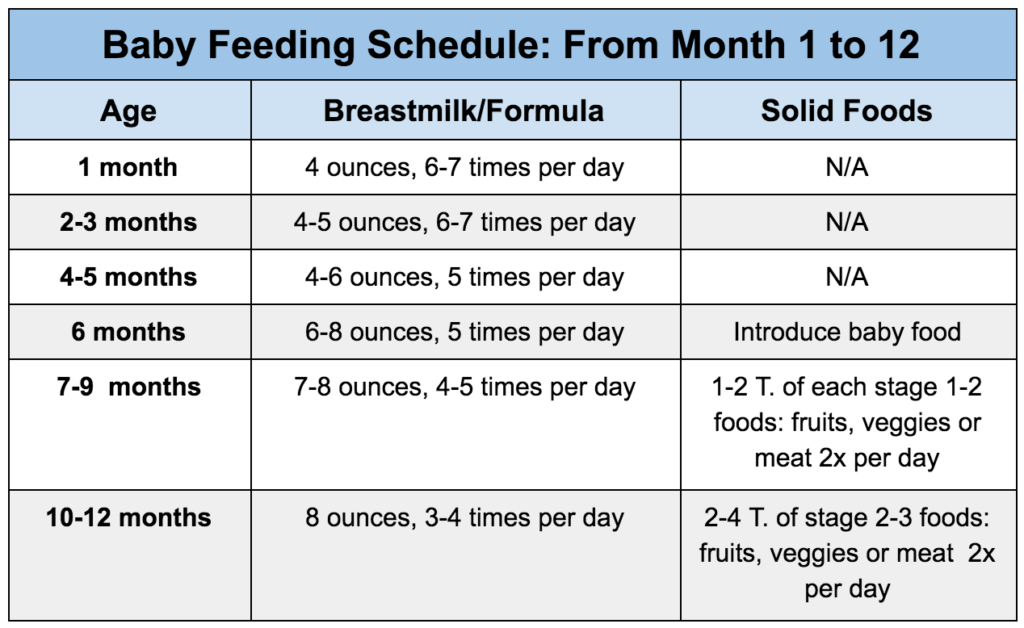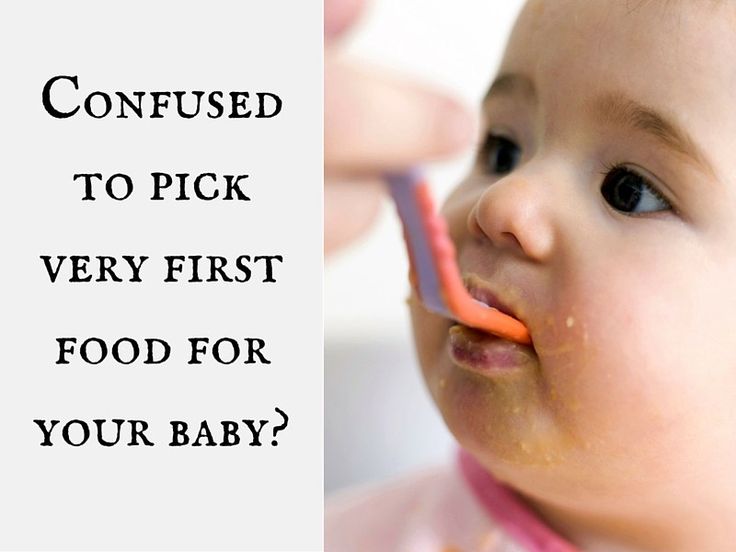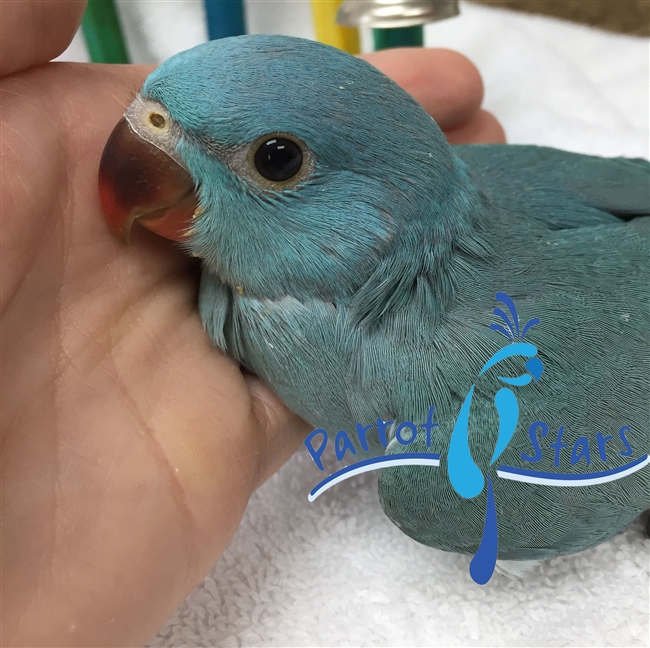Baby screaming when trying to feed
Baby Fusses or Cries During Feeding: Causes & Solutions
Is your baby fussy every time you offer the breast? Do they cry, making it hard to breastfeed?
I’ve been there and know how it can be distressing when your baby is irritable while breastfeeding. It can make you question whether you’re doing something wrong and why the experience isn’t turning out how you imagined.
To help set your mind at ease and offer you some hope, we’ll share everything we know about what makes a baby upset during breastfeeding.
We’ll help you determine the cause of your baby’s fussiness. We’ll also offer our solutions so your breastfeeding sessions can return to being a peaceful experience you both enjoy.
Causes of Baby Crying During Feeding
Half the battle is finding out why your baby is crying and fussing when they should be enjoying their time at the breast. You want to know your baby is getting enough milk and thriving. But it’s hard to be sure when they always latch on and off, crying in between.
Let’s discuss some possible causes.
1. Baby Isn’t Latching On
If your baby is fussing or crying, getting them to latch on to feed can be challenging. Whether overtired, overstimulated, or just plain hungry, a crying baby is unlikely to latch.
The Solution
Begin breastfeeding while your baby is calm and awake, before they get too hungry. Watch for early hunger cues such as rooting, smacking their lips, sucking their hands, sticking their tongue out, or waking from sleeping. Crying is a late sign of hunger.
Swaddling your baby and holding them close, dimming the lights, or moving somewhere peaceful and quiet might also help.
Another thing you can try is squeezing a few drops of milk onto your breast to entice your baby to latch on. The taste and smell of the milk might stimulate them to feed. Changing position or changing breasts can also work sometimes (1).
2.
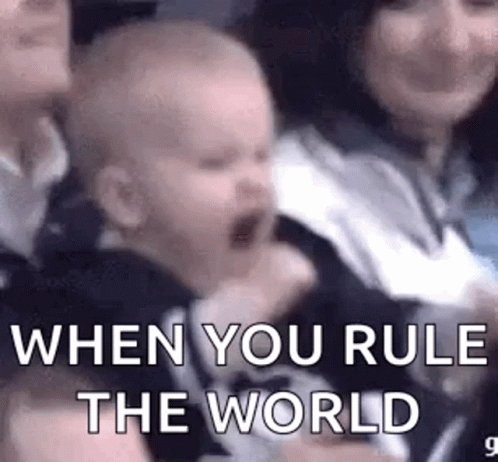 The Milk Flow Is Too Fast or Too Slow
The Milk Flow Is Too Fast or Too SlowPaying attention to when your baby starts to cry might shed some light on the reason.
If your baby is fussier in the morning, it could be that your overly full breasts release too much milk too quickly. Your breasts may have become engorged with milk during the night and your baby can’t cope with this forceful let-down.
Conversely, if they are fussier in the evenings, maybe the milk release is too slow and they get frustrated. They become impatient, waiting for the flow of milk that comes with the let-down, and start crying.
The Solution for Fast Milk Flow
A strong release of milk, or overactive let-down, can make your little one choke, gag, or cough when they’re feeding. They might unlatch from the breast because they don’t like or can’t cope with the fast flow. They could also be gulping a lot of air with the milk and getting gassy, which causes more upset.
These are some of the things you can do to counteract this:
- Express before feeding: Pumping some of your milk before feeding, or expressing by hand, can help slow down the flow.
 After you feel the first let-down pass and you see the flow is slowing, put your baby to your breast.
After you feel the first let-down pass and you see the flow is slowing, put your baby to your breast. - Lie back when nursing: Adopting a laid-back feeding position with your baby lying on top of you can slow the flow. You could latch your baby on and then lie back against some cushions or pillows. Milk will flow against gravity and won’t pour down your baby’s throat.
- Burp regularly: When your milk is flowing fast, your baby may gulp lots of air while feeding. A gassy baby is a fussy baby, so burp them regularly, during and after the feed.
- Feed one side at a time: Alternate your breasts at each feed. That way, once the flow slows down on the breast your baby is feeding on, they might stop fussing.
- Take a feeding break: If your flow is too much for your little one to cope with, remove them from the breast for a few seconds. Let the excess milk leak onto a towel, and offer the breast again when it stops.
 This might make your baby fussier for a while, but it will pay off in the long run.
This might make your baby fussier for a while, but it will pay off in the long run.
The Solution for Slow Milk Flow
Your baby is hungry, but your milk is not coming quick enough. Just as we can get “hangry” when we need food or drink and aren’t getting it, our babies can too!
Luckily, we have some things you can try to combat a slow flow or delayed let-down:
- Stimulate the flow: Either pumping or hand expressing a little milk before latching can kick-start your let-down reflex. Once you have a steady flow, then you can put your baby to your breast.
- Warm compress: Use a warm towel or compress for a few minutes to stimulate letdown. Place it on your breasts just before each feed.
- Massage: Massaging your breasts before and during a feed can help the milk flow faster.
- Try breast compressions: If you notice your baby is about to start fussing and might unlatch, squeeze your breast.
 This will give your baby a burst of milk, keeping them actively feeding.
This will give your baby a burst of milk, keeping them actively feeding. - Get comfortable: Breastfeeding a fussy baby can be frustrating for you as well. Try and feed in a relaxing position, away from distractions. It’s a perfect time to just concentrate on your baby.
- Make sure your baby gets enough milk: All that fussing and crying might make your little one tired, and they may fall asleep at the breast before they’ve eaten enough. Try and stimulate them to continue feeding by tickling their foot or stroking their cheek. The more your baby feeds, the more milk you will produce.
- Some dos and don’ts: When breastfeeding, avoid smoking and alcohol. Also, try and steer clear of soda and coffee. All these could affect your milk production. Ensure you eat a balanced diet and stay hydrated, too (2).
3.
 Baby Is Going Through a Growth Spurt
Baby Is Going Through a Growth SpurtThere are times during a baby’s first year of life when they go through growth spurts. Their weight and length will increase, as will their head circumference.
Your baby may want to feed more often during a growth spurt and can become fussy. It’s not uncommon for a baby to suddenly feed up to 18 times in 24 hours.
While one does not necessarily lead to the other, it makes sense that a growth spurt and sudden, frequent feeding go hand in hand. Your baby will need more milk to support the growth spurt, and nursing more will naturally boost your supply.
During this time, babies can also become fussier than usual. They might appear unsettled and clingy, and they may not sleep as well as usual.
Growth spurts generally happen several times during the first year. These are the ages when they are likely to occur:
- Two weeks old.
- Three weeks old.
- Six weeks old.
- Three months old.
- Six months old.

Not all babies will follow this timetable; some might have more growth spurts or they may be at different times. For some babies, there might be no change in their behavior when they have a growth spurt.
The Solution
During this time, follow your baby’s lead. Respond to their needs, whether it’s more feeds, extra cuddles, or just quiet time and a nap.
Your baby might get fussy if you aren’t producing as much milk as they want. It can take a day or so for your supply to catch up with the demand. The more you let your baby feed, the more milk your breasts will produce.
Your baby may seem hungry after normal feeding time, so don’t be afraid to nurse again. Keep yourself feeling good during this time by staying hydrated and eating balanced meals. Remember, you are not Superwoman; let family and friends help with chores and shopping while you spend time with your baby.
4. Baby Is Going Through a Developmental Stage
Your baby is constantly developing mentally and learning new skills as they go along.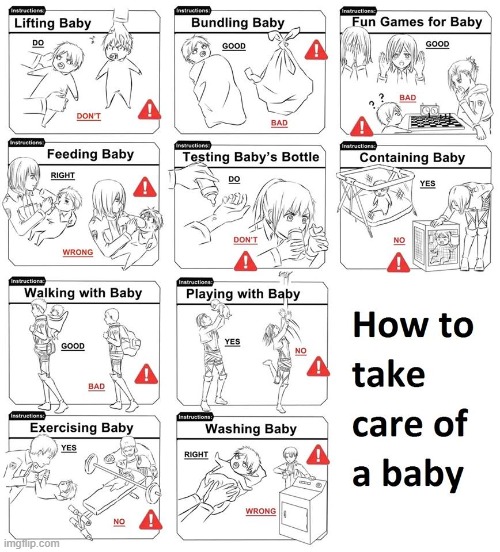 It can be a bit overwhelming and confusing for them, and there might be weeks when they are fussier than usual. Sometimes called the “Wonder Weeks,” it can explain mood changes in your baby (3).
It can be a bit overwhelming and confusing for them, and there might be weeks when they are fussier than usual. Sometimes called the “Wonder Weeks,” it can explain mood changes in your baby (3).
You might find that during these periods, your baby becomes more curious and distracted while feeding. They might want to feed more or, conversely, not stay latched on long enough for a good feed. They can be cranky and fussy and cry a lot when you’re trying to breastfeed.
The good news is that these periods generally only last a few days before your baby returns to normal behavioral patterns.
Not all babies will fit into the pattern of wonder weeks and develop at different times.
The Solution
Feed your baby in a quiet room where there are likely to be fewer distractions. There’s nothing worse than having a situation where your little one latches on, then hears their dad or sees the dog and stops feeding (or worse yet, turns their head with your nipple still in their mouth!).
Trying to get your baby to pay attention can make them fussier and be a constant battle.
You might also find that your baby is fussier and wants to feed more often during these periods. Again, take your cue from them, and give them the extra time and attention they need.
5. Baby Needs to Burp
Babies often fuss, cry, or pull away from the breast when they need to burp. A fast flow of milk can exacerbate this. They can also swallow more air when they’re fussy or gulp down milk faster than usual if they’re over-hungry.
The Solution
Breastfed babies tend not to need burping as often as bottle-fed ones. However, there are times when gas can make them uncomfortable and they need to get it out.
If your baby is fussing, stop the feed and try and burp them. If you let them carry on feeding while they’re crying, then they can take in more air and make the problem worse. Eventually, it can end up with them spitting up.
It’s a good idea to burp your little one mid-feed, even if they don’t appear to be in too much discomfort. Try to do it when switching breasts or when your baby latches off the nipple.
Try to do it when switching breasts or when your baby latches off the nipple.
Other Reasons for Crying During Breastfeeding
We’ve looked at some of the main reasons your baby might cry while breastfeeding. There are a few other things that can cause this, including:
- Baby prefers one side: Your milk supply might be better on one breast than the other. This may be apparent if your baby only fusses when fed on one side.
- Teething: This can be a painful and uncomfortable time for your baby, and they might fuss more when feeding. You might first realize it’s happening when they clamp down on your nipple and you feel the teeth through the gums. I’m all too familiar with that pain! But trust me, your baby isn’t trying to hurt you; they just want to relieve their pain (4).
- Baby has eaten enough: If your little one starts fussing toward the end of a feed, this might be a sign they’ve had enough.
 Try offering the breast again a few times. If they don’t want it, move on. If you have ruled out any other causes for their crying, their little tummy might be full.
Try offering the breast again a few times. If they don’t want it, move on. If you have ruled out any other causes for their crying, their little tummy might be full. - Baby wants to be pacified: Your little one might be full but still wants to suckle. However, it can be frustrating for them when milk is still flowing. This could be an excellent time to offer a pacifier for them to suckle.
- Thrush: This fungal infection can affect your nipples or a baby’s mouth. If your baby has oral thrush, feeding will be uncomfortable, and they can get fussy. If you suspect this, contact your health care provider (5).
- Baby has a cold: Trying to feed and breathe through a stuffy nose simultaneously can be challenging for a little one. They will become fussy and break away from the breast a lot. Use a nasal aspirator to try to clear their nose, or ask your pediatrician for advice.
- Food sensitivity or allergy: While you might enjoy eating spicy food for dinner, your baby may not.
 The flavor of the food you eat comes through in your milk, and your little one might not always like the taste or the smell. You might notice they are fussier when you have consumed certain foods they don’t like or are allergic to (6).
The flavor of the food you eat comes through in your milk, and your little one might not always like the taste or the smell. You might notice they are fussier when you have consumed certain foods they don’t like or are allergic to (6). - Reflux: Although it’s not very common in breastfed babies, sometimes food comes back up from a baby’s stomach. This can make them cry and feel uncomfortable when feeding (7). Speak with your baby’s doctor if you suspect this is causing your baby to be fussy or cry during breastfeeding.
Feedback: Was This Article Helpful?
Thank You For Your Feedback!
Thank You For Your Feedback!
What Did You Like?
What Went Wrong?
My baby fusses or cries when breastfeeding
By Kelly Bonyata, BS, IBCLC
© Lsantilli - Fotolia.com
Some babies will fuss, cry or pull off the breast during breastfeeding. There are a number of reasons why this might be happening. It’s pretty common to see this type of behavior at around 6-8 weeks, though it can occur at any time. If your baby is generally fussy (not just when nursing) see My baby is fussy! Is something wrong?
There are a number of reasons why this might be happening. It’s pretty common to see this type of behavior at around 6-8 weeks, though it can occur at any time. If your baby is generally fussy (not just when nursing) see My baby is fussy! Is something wrong?
Determining the problem
Here are some of the problem-solving steps I go through when my baby is fussy at the breast or a mother asks me why her baby is fussing while breastfeeding:
.
How old is baby? Most babies go through growth spurts during the first few days at home and around 7-10 days, 2-3 weeks, 4-6 weeks, 3 months, 4 months, 6 months, 9 months, etc. Many babies are fussy during growth spurts.
Is baby working on anything new developmentally? Babies who are starting to notice the world around them can be notoriously distractible. Any kind of new developmental step that baby is working on can affect nursing temporarily, whether it be fussy nursing behavior or simply more frequent nursing.
When is baby fussing? To figure out the cause it’s helpful to pay attention to when the fussy behavior happens, both during the nursing session and during the day.
If baby is fussy right when your milk is letting down (or immediately after), there’s a good chance that the fussy nursing is related to a fast let-down. If baby is fussy before let-down, or a few minutes into nursing (and a while after let-down), then baby may be impatient for the fast flow of milk that comes with let-down. Fussing at the end of a nursing session (or what seems to be the end) may mean that baby needs to burp, or is ready to finish nursing, or just wants to suck (and doesn’t want to deal with a new let-down at this point), or wants to continue nursing on the other side or with a faster flow of milk.
If the fussy behavior is mainly in the mornings, it might be due to a faster than usual let-down if baby has just had a longer sleep period and mom’s breasts are fuller than usual. If baby is fussier during evening nursings, it may be due to the normal fussy time that most babies have during the evening. Although most babies don’t react to foods that mom eats, some do. If you eat a particular food at about the same time each day (or most days) and baby has a regular time where she fusses during nursing, try not eating that food for a week or two to see if things improve.
If baby is fussier during evening nursings, it may be due to the normal fussy time that most babies have during the evening. Although most babies don’t react to foods that mom eats, some do. If you eat a particular food at about the same time each day (or most days) and baby has a regular time where she fusses during nursing, try not eating that food for a week or two to see if things improve.
Does fussing occur on both sides equally or only on one side? Most moms have a faster let-down and/or a more abundant milk supply on one side than the other, so if your baby fusses more on one side, it may be due to these differences.
What else is going on with baby? Is she sick or teething? Is something new or different going on in her environment? Has she started solids or is she trying a new food? Is she exhibiting other symptoms besides the fussy nursing?
Below are discussions of some of the different things that can lead to fussy nursing behavior.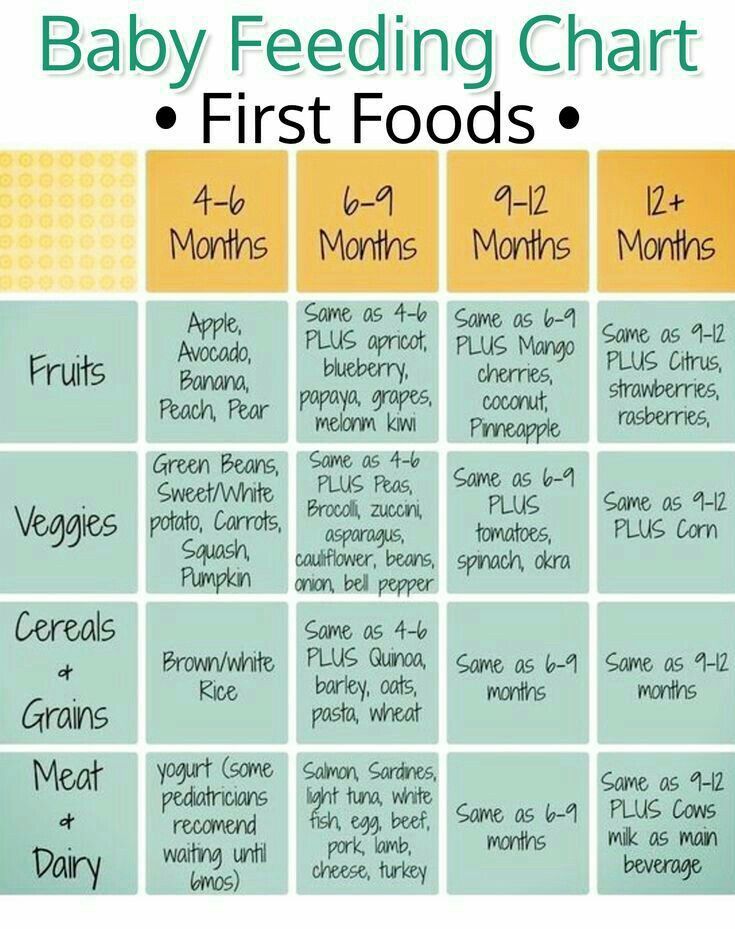 Keep in mind that the problem may also be a combination of several things.
Keep in mind that the problem may also be a combination of several things.
Does baby need to burp?
Many babies will cry, fuss, pull off the breast, etc. if they need to burp. Try to burp between breasts and after a feeding, but don’t worry if baby does not burp and is content. Breastfed babies overall don’t take in as much air during a feeding as bottle-fed babies do, so usually don’t need to burp as often. If baby has been crying before she nurses, or is so hungry that she nurses “frantically” or if mom has a fast let-down, baby could be taking in more air and may need to be burped more often.
Burping is usually only necessary during the first few months, though it may extend longer. Once your baby is moving more freely, she will be able to relieve the gastric gas herself. This usually will occur between the 4th and 6th month, but may be shorter in some children and longer in others.
If baby has a hard time burping, try burping more often during a feeding. The best burping position is one that applies firm pressure to the baby’s tummy. Placing baby over the shoulder way up so that there is pressure on baby’s abdomen often works well. Walking around while doing this might distract her long enough to get a good burp. You may even want to lie baby down on her stomach and burp her that way.
The best burping position is one that applies firm pressure to the baby’s tummy. Placing baby over the shoulder way up so that there is pressure on baby’s abdomen often works well. Walking around while doing this might distract her long enough to get a good burp. You may even want to lie baby down on her stomach and burp her that way.
Growth spurt
Babies often pull off and fuss during growth spurts. Most babies go through growth spurts, sometimes called frequency days, during the first few days at home and around 7-10 days, 2-3 weeks, 4-6 weeks, 3 months, 4 months, 6 months and 9 months (more or less). More growth spurt information in this link.
Distractible baby
If baby seems to be pulling off the breast at any distraction (real or imaginary), then see The Distractible Baby.
Forceful let-down
Some babies will pull off the breast soon after let-down if mom has a forceful let-down. Baby may be frustrated by the too-fast flow of milk with let-down. A too-forceful let-down can also cause excessive gas or spitting up/vomiting. There is more information here on symptoms of and how to deal with a fast let-down reflex.
A too-forceful let-down can also cause excessive gas or spitting up/vomiting. There is more information here on symptoms of and how to deal with a fast let-down reflex.
Slow let-down
Some babies get very impatient if mom has a slow let-down. There is more information here on speeding up a slow let-down reflex.
Baby wants a faster milk flow
Even very young babies can be quick to notice that pulling off, kneading the breast, etc. can cause an additional let-down, and can facilitate a faster, easier milk flow. Some babies become impatient with the slower milk flow following the initial fast flow at let-down. This may or may not be related to a slow let-down.
When a feeding begins at the breast there are drops of milk. Then when the initial let-down occurs (several seconds to a minute into the feeding), the milk flow speeds up quite a bit. At that time it may drip very quickly, squirt, or even spray. Some minutes later it slows again and the baby must continue to suck vigorously in order to elicit further let-downs. This pattern can continue through successive, multiple let-downs as long as the baby is continuing to nurse vigorously. Eventually, baby will learn that the flow will pick back up again if she’ll only continue to vigorously suck/swallow.
This pattern can continue through successive, multiple let-downs as long as the baby is continuing to nurse vigorously. Eventually, baby will learn that the flow will pick back up again if she’ll only continue to vigorously suck/swallow.
With bottle feeding, the flow is instant and continuous. The baby is required to work very little. Once a baby has had a bottle, especially a lot of bottles, she may begin to prefer the ease of bottle-feeding over the work of breastfeeding. She may become frustrated at the breast after the first let-down occurs and the flow of milk begins to slow.
If baby is getting bottles you might consider putting them away, at least for a while. When you must use a bottle, only use a newborn nipple for as long as baby will tolerate it so that she never gets a really fast flow of milk from the bottle, but has to work a little more to get the milk.
Sometimes babies of moms with oversupply or fast let-down will also get very used to the fast flow and object when it normally slows somewhere between 3 weeks to 3 months.
It can be helpful to do some breast compression when this fussiness starts or right before you expect it to. This will help speed up the milk flow again. Once compression stops helping, try switching baby to the other side when she begins to fuss and back and forth again (after using compression) as you need to.
Baby is done nursing for the moment
If baby is fussing after she’s been nursing for a while, and you’ve ruled out other causes, she may be in the process of changing her nursing pattern. Babies become very efficient at the breast with growth and maturity. They can milk the breast in a lot less time per feeding session than they required before. Baby’s frustration may just be a sign that she’s finished and wants to move on.
On a similar note, an occasional baby will just want to suck at the end of a nursing session and the flow of milk with let-down frustrates her. You might see if offering her a finger or pacifier (if baby is older than 4-6 weeks) to suck on during these times seems to help.
Baby prefers one side
Sometimes babies will refuse or fuss at a breast when the let-down is slower or too forceful, or the supply a bit lower. They in turn will prefer the side which lets down more/less quickly and in which the supply is more bountiful. See also: Lopsided! What can I do?
Fussy in the evening
Many young babies tend to pull off and fuss at the breast in the evening. See the article Cluster Feeding and Fussy Evenings.
Teething
Teething can cause fussy nursing behavior, as some babies experience gum discomfort with sucking. Baby might start to nurse, but then pull off and cry or fuss and not want to nurse anymore. See Teething for more information and tips.
Thrush
Frequent pulling off the breast can be a symptom of thrush.
Stuffy nose
A stuffy nose can cause fussy nursing behavior. If your baby has a stuffy nose and is having a hard time breathing and nursing at the same time, see colds & congestion.
Allergy or food sensitivity
Some babies with allergies or food sensitivities exhibit fussy nursing behavior. Often when there is a sensitivity to something in mom’s diet, baby will come to the breast hungry but when she tastes/smells something in the milk that will cause her GI distress, she pulls off, bats her head back and forth, etc. Sensitivities to foods in mom’s diet are rare. If this is the problem, you will most likely notice other symptoms, such as excessive spitting up or vomiting, colic, diarrhea, rash, persistent congestion or runny nose, or excessive gas. More information on food sensitivities in babies and links to more allergy information can be found in my article Dairy and other Food Sensitivities in Breastfed Babies.
Low milk supply
Low milk supply can cause baby to be fussy at the breast. If you feel that your milk supply may be low, see this page for more info: Increasing low milk supply.
Reflux
Reflux can result in baby being fussy at the breast. See Reflux and Breastfeeding for more information.
See Reflux and Breastfeeding for more information.
Tongue-Tie
Tongue-Tie can result in baby being fussy at the breast. See Breastfeeding a Baby with Tongue-Tie (Resources) for more information.
Child development crises before school
Margarita Noskova
psychologist and mother
Author's profile
When a child's behavior changes, parents often fall into a stupor or panic. Just yesterday, the baby was accommodating and smiling, and today he cries all day and refuses to fulfill requests.
I carefully prepared for the birth of my son: I read a lot of literature on education, I was interested in the experience of my friends and acquaintances. I just remembered that I once studied - I am a psychologist by education. But when my son was born, it suddenly seemed to me that I didn’t know anything and didn’t understand what to do next. nine0003
I remember the first months of my son's life with a slight shudder: he slept little and screamed a lot, until three and a half months he did not get off his hands at all. When the son went on his own, the daily routine became more interesting and a little easier, so the crisis of the first year of life passed almost unnoticed. Now my child is a two-year-old with an active life position, which is periodically reported by a wild or. Fortunately, now I understand how to deal with this.
When the son went on his own, the daily routine became more interesting and a little easier, so the crisis of the first year of life passed almost unnoticed. Now my child is a two-year-old with an active life position, which is periodically reported by a wild or. Fortunately, now I understand how to deal with this.
In the article I will talk about the first crises in the life of a child and how parents should act when a difficult period comes. nine0003
Why developmental crises occur
Psychology knows several approaches to the periodization of a child's development, but they all agree that children go through certain crisis stages - this is inevitable.
Don Bokum, Grace Kraiga "Developmental Psychology"
The fact is that crises in a child's life are associated with significant changes in his life. As a rule, three factors influence this most of all: a change in the social situation of development, a change in the leading activity, or the emergence of new skills in the child. I'll tell you more about this. nine0003
I'll tell you more about this. nine0003
The social situation of development is the relationship between the child and the environment that educates and surrounds him. In practice, this is any communication between a child and adults around him: parents, relatives, family friends, caregivers, teachers.
A crisis occurs when the social situation changes. The child grows up, and it becomes not enough for him to communicate only with his parents, he begins to be interested in other people, wants to play with other children. Attempts to establish contact are not always successful - this can be frustrating for the child. nine0003
Leading activity determines the development of the child at one stage or another, the most important changes in mental processes depend on it. Roughly speaking, this is the main occupation of the child, what it is important for him to do at a particular age. For example, the leading activity from birth to a year is direct emotional communication with an adult.
"Can't climb walls even though I'm wearing a Spider-Man suit" and 30 other reasons for a child's tantrum - Chips Journal
A crisis occurs when a child switches to a new type of activity, begins to explore the world, but is faced with the fact that not everything is allowed to him and not all objects can be influenced. For example, children can get upset even because large objects do not fit into their mouths, and hard ones do not bend.
New skills, or mental neoplasms - as psychologists call them - can also cause a new crisis. New skills may frighten the child at first, because he still does not really understand how to apply it, but he tries very hard. For example, a crisis occurs when a child begins to speak: the baby may not always be understood, and sometimes the vocabulary is not enough to express everything you want - this upsets. nine0003
/pervoe-slovo/
How to help your child speak faster
All children experience these periods of change differently. One child will be capricious when faced with any difficulties, another will be offended, refuse to communicate and sit sullenly in the corner, and the third will simply become very demanding and relentless, but without hysterical antics. It can be difficult for parents to survive these periods of change, but the longer they try to maintain the old way of life, the more difficult it is for children to get a new round of development. nine0003
One child will be capricious when faced with any difficulties, another will be offended, refuse to communicate and sit sullenly in the corner, and the third will simply become very demanding and relentless, but without hysterical antics. It can be difficult for parents to survive these periods of change, but the longer they try to maintain the old way of life, the more difficult it is for children to get a new round of development. nine0003
Next, I will talk about the main crises that parents face from the birth of a child to school.
Neonatal crisis
How it manifests itself. A newborn child is helpless and completely dependent on adults, but he can communicate his needs only by crying. The problem is that it is difficult for parents to understand what exactly a cry means at one time or another - you have to guess with the help of intuition and logic. Until the parents understand what exactly needs to be done, the baby can worry and scream, which means that the whole family will be nervous and upset. nine0003
nine0003
Deadlines. Officially, the neonatal crisis is considered to last from the moment a child is born to two months. During this time, parents usually find a common language with the baby. But everything is individual - the crisis can go on longer.
How to be parents. Don't treat a baby's cry as a whim. Even if the baby is full, slept well and in a dry diaper, his crying can signal a lack of attention from parents. The fact is that bodily contact with parents is the basic need of newborns, and direct emotional communication with them is the leading activity. All this helps to form a quality attachment and will serve as a support in the future life of the child. nine0063 At this age, children do not manipulate the cry and it is impossible to accustom them to hands.
True, we should not forget about another key task of this period - to allow the mother to recover after childbirth. To do this, it is important for her to share the care of the baby with someone else. In my practice, there were situations when relatives or nannies helped the family to survive the neonatal crisis. Don't be afraid to ask for help if you need it.
In my practice, there were situations when relatives or nannies helped the family to survive the neonatal crisis. Don't be afraid to ask for help if you need it.
Sleepless nights can also affect the mother's well-being, and hence her ability to take full care of the child. If your baby does not sleep well at night, try different sleep arrangements, consult a pediatrician, and ask for help from sleep consultants. Coping with a neonatal crisis will be easier if the whole family gets enough sleep. nine0003
/spi-moya-radost/
How to deal with baby sleep problems
What to buy. During this period, it is important to free yourself from other worries and delegate part of the functions to relatives or specially trained people. For example, order cleaning or buy ready-made food. If the baby spends all the time in the arms of the parents, it may be worth trying to buy a swing or a deck chair to make life easier for yourself.
The use of swings will not harm the formation of attachment: it is important not only the quantity, but also the quality of time that parents spend with the child. If you communicate with the baby every day, then daytime sleep not in mother's arms, but, for example, in a swing will not hurt anyone. nine0003 An electric swing is quite capable of replacing swinging on your hands and giving mom or dad a break. Such a model costs 25,900 R, but there are also more budget options - from 2000 R. Source: akusherstvo.ru
How I got through the crisis. I came to my senses for about four months. My child cried often and woke up 8-12 times a night. The side bed helped to save the remnants of sleep, and then joint sleep.
Since my son slept exclusively on me at first, I learned how to organize the space according to my needs. Usually she held the child with one hand and leaned her body on the back of the sofa, always left the other hand free to, for example, eat, take a mug, sit on the phone or do something on the computer. At three and a half months, the baby abruptly “matured up” and suddenly became interested in what was happening around, got off his hands, lay on the floor with pleasure and touched toys. So this period had to be just waited out. nine0003
At three and a half months, the baby abruptly “matured up” and suddenly became interested in what was happening around, got off his hands, lay on the floor with pleasure and touched toys. So this period had to be just waited out. nine0003
Until about four months of life, babies do not wake up from the noise in the room, so I could safely watch movies and TV shows with sound - it brightened up the routine.
Crisis of one year
How it manifests itself. Young parents often hear the phrase "It will get easier after a year" - this is true and a myth at the same time. A myth, because even after a year, babies still require a lot of attention and you won’t be able to move away from them for a long time. True, because by the age of one year children are already more independent and aware: they can crawl, and some can walk, point fingers at interesting objects, understand speech addressed to them, hold some objects in their hands. nine0003
Thanks to this, the child understands that every day he can do more, that it is not necessary to call his mother to take the item of interest. During this period, it becomes especially important for him to grab objects, manage them himself and understand what can be done with the help of this or that thing. And this is the main reason for the crisis: the kid wants to do a lot, but still knows little.
During this period, it becomes especially important for him to grab objects, manage them himself and understand what can be done with the help of this or that thing. And this is the main reason for the crisis: the kid wants to do a lot, but still knows little.
Understanding that the crisis has come is quite simple: the child begins to demand more attention and ceases to obey adults. He becomes stubborn and behaves more actively than before, is naughty out of the blue, refuses usual activities, such as walking, bathing or brushing his teeth. If at 8-10 months the child could at least occasionally play by himself for 5-10 minutes, crawled on his own and did not call for help, then by the time of the crisis he again begins to demand the constant presence of an adult nearby. Sometimes even outbursts of aggression are possible, but this is rare. nine0003
Deadlines. The crisis of the first year can begin even earlier, conditionally at 10-11 months, and by the age of one and a half it usually ends. By this moment, the kid accepts the rules of the game: he understands what he will do himself, and in what cases he still needs to call an adult for help. Some motor skills are reinforced.
By this moment, the kid accepts the rules of the game: he understands what he will do himself, and in what cases he still needs to call an adult for help. Some motor skills are reinforced.
How to be parents. In a crisis period, it is important whether adults will restrict the child and prohibit everything, or, on the contrary, will give moderate freedom in action. The fact is that through the ratio of freedom and prohibitions, the child will begin to form a basic trust in the world. He will draw conclusions whether the world is safe and open to him or, on the contrary, it is terrible and dangerous, since his parents forbid everything. nine0003
/list/dad-and-son/
10 things a dad should do in the first year of a child's life go into puddles, climb into drawers and chests of drawers at home. At the same time, parents must strictly limit dangerous actions: you can’t climb onto the window sill, even if you really want to look at the street.
Some parents continue to do everything for a one-year-old child, believing that he is still small. But with such a strategy, adults are threatened with frequent tantrums, and there is still a great risk of getting a helpless child in the future: he will simply accept and get used to what everyone is doing for him. nine0003 Eating with your own hands is a great idea. I didn’t worry that my son would get dirty: the washing machine will endure everything
Of course, the child will do everything on his own for longer. When my son walks along with me on business, and does not ride in a stroller or on his hands, the short road turns into a long walk. This can be annoying. Sometimes parents want to shout, scold the baby for sluggishness or mistakes.
Parents usually resort to swearing out of impotence or fatigue, but at the same time, the child undergoes changes not only of a psychological nature, but even at a physiological level: the heartbeat quickens, the hormone cortisol begins to be produced. That is, his body perceives the cry as a danger - he believes that he needs to run or freeze, but not listen and draw conclusions. nine0003
That is, his body perceives the cry as a danger - he believes that he needs to run or freeze, but not listen and draw conclusions. nine0003
It is also important for parents during this period to explain to the child the first rules of behavior and set the boundaries of norms. The rules should be the same for everyone and act not only at home, but also when visiting grandparents: this is the only way the child will not get confused. For example, you can’t bite and beat anyone, even if the grandfather is not against comic cuffs from his grandson. Be prepared to repeat the same thing day after day: the child will not immediately want to obey and do everything that is required of him.
What to buy. nine0026 Closer to a year, children master most motor skills and practice them even at night. At this age, they will sometimes wake up, try to sit up, get up and get out of the crib. It may be dangerous. High sides by the bed will help protect the child from falling - they should reach the baby to the armpits if he is standing.
/guide/safety-kids/
How to make an apartment safe for children
To monitor a sleeping child during the day and late at night, parents will need a video baby monitor or a camera with night vision. Video baby monitors cost from 5000-6000 R. Video cameras are slightly cheaper - from 2000-3000 R. I had a video camera. nine0003
To allow the child to be more independent, you need to prepare an apartment for this: block windows, sockets and cabinets with household chemicals, equip a space for games, for example, lay a rug on which the child will not be cold to play, and put a rack with toys. It's inexpensive: plugs cost about R100 for a set of six, lockers for cabinets from R80 each, and for windows from R200. . For example, a breathing monitor or a speaker that reacts to crying and turns on white noise for the baby. Source: akusherstvo.ru If there is not enough space in the apartment, you can buy a rug-bag. During games, the baby sits on it, and when it finishes, the rug is easy to fold and put away with toys. Such a rug costs from 700 R. Source: akusherstvo.ru
Such a rug costs from 700 R. Source: akusherstvo.ru
How I got through the crisis. My son had a crisis when he was 11 months old. He became especially active, constantly asked to be held and demanded that I carry him to specific objects. He didn't want to sit in the wheelchair either - he held out for a maximum of 20 minutes, and then yelled and tried to get out of it.
In response, I changed my approach to walking. Now we sometimes went out without a stroller. When my son began to walk on his own, I sometimes began to ask him to help my mother carry the stroller so that he would walk next to me, and not ride on his hands. If possible, I took him in my arms and was there as long as I could, so that he would get enough attention and quickly switch to more interesting activities. And I haven’t yelled at the child yet, although sometimes I really wanted to do it - herbal sedative drops helped me with this. nine0003
We also organized a safe space for children in the house.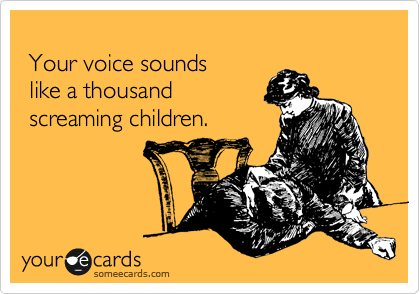 In his corner, the son played and arranged the toys on the garage shelves himself. It was good for everyone: the child had the freedom of creativity, and I had peace of mind that he did not destroy the whole apartment.
In his corner, the son played and arranged the toys on the garage shelves himself. It was good for everyone: the child had the freedom of creativity, and I had peace of mind that he did not destroy the whole apartment.
Crisis of two years
There is no such concept in any classical age periodization, nevertheless, parents often face something similar to a crisis during this period. I observed this both as a mother and as a specialist. nine0003
How it appears. The main symptom is resentment and frustration when something does not go the way the child intended. For example, he wanted to press the button in the elevator himself, and his mother did it. Or he wanted the whole kilogram piece of cheese, and not the piece that was cut off for him. Moreover, these are precisely the features of thinking, and not just the desire to be harmful.
/happy-kid-2/
"Calm child, but sometimes psychotic": 9 questions to the therapist about children's oddities
Children also perceive whole objects as correct and good. For example, if parents break off a piece of a cookie, then for a child it already becomes spoiled, defective - this is a reason to be upset. nine0003
For example, if parents break off a piece of a cookie, then for a child it already becomes spoiled, defective - this is a reason to be upset. nine0003
Deadlines. There are no clear boundaries, but in practice, children's stubbornness, tantrums and frustrations for any reason are more common at 2-2.5 years.
How to be parents. Try to ask the baby what he wants and in what form. If the child does not speak yet, offer him options and ask him to point to the one he likes. If the child's request is feasible, then just do as he wants. For example, let you take a plush dinosaur with you for a walk or open the bathroom door yourself after bathing. nine0003
If the request cannot be fulfilled, then explain to the child in detail why, but at the same time be prepared for tears and hysteria. Remember that tantrums do not last forever - they end even if the baby cannot be switched to something else.
If possible, divide food into portions out of children's sight and bring already cut or serve whole.
How I got through the crisis. In my case, the crisis is still ongoing - now the active phase. The child is very demanding, starts screaming if something important for him does not go according to plan. nine0003
My son already speaks well enough, so I ask him in a firm voice to stop shouting and say in words what he wants, otherwise I will not understand him. Sometimes it works. In other situations, I just wait out the tantrum, and then tell him that he was upset, it happens, and this is normal, but now you need to calm down. To calm down, I suggest that he breathe, hug or start playing something. It works only once, but this is already a big success.
Recently, I began to negotiate with my son. For example, before going to bed, he asks to go to the kitchen to take something, although he is already in bed, and I read books to him. Then I say that now we are going to the kitchen, he will take what he wants, and then immediately go back to the room to sleep. Then I ask: “Agreed?” He confirms. Then, in the kitchen, I remind him of the contract and agreement, and we return back. Of course, this doesn't always work either, but it's still worth trying. nine0003 The child makes ultimatum demands for cheese: only the whole thing, no pieces
Then I ask: “Agreed?” He confirms. Then, in the kitchen, I remind him of the contract and agreement, and we return back. Of course, this doesn't always work either, but it's still worth trying. nine0003 The child makes ultimatum demands for cheese: only the whole thing, no pieces
Crisis of three years
How it manifests itself. This is the most famous children's crisis among the people. Among the characteristic symptoms are stubbornness, self-will, devaluation of adults and the desire for despotism, that is, the manifestation of one's power over adults. Often there is negativism - this is when the child answers "no" to all proposals and requests.
The main message of the crisis is “I myself”. Children strive for autonomy and test how strong the boundaries of what is permitted are. They begin to understand that they have their own will and may not obey an adult in absolutely everything. nine0003
The game becomes the leading activity of this period, during which the main development takes place. The social situation is also changing - the child begins to be interested in other people, now he is ready to perceive children as partners in games.
The social situation is also changing - the child begins to be interested in other people, now he is ready to perceive children as partners in games.
Timing. Here the terms are also blurred. The beginning can be expected at two and a half years, and later, up to three and a half years. The crisis itself does not last 1-1.5 months, but longer.
How parents should act. Independence, the ability to say "no", the ability to form and defend one's opinion are born just at the age of three. Their further development is partly determined by what parenting strategy the parents choose at that moment. nine0003
I recommend that clients take a partner position in relation to the child, but with elements of imperious care, as Ludmila Petranovskaya puts it. This means that you perceive the child as a separate person with your own needs, tastes and interests, are ready to take into account his opinion, conduct a dialogue, take care of satisfying his needs, but define the rules and boundaries of behavior.
There are a number of universal recommendations - I discuss them with almost all clients who want to help themselves get through this period. nine0003
Be as calm and consistent as possible. If you start to boil, then this is an occasion to ask to replace you for a while - so that you switch.
Also, I would not ignore such a resource as cartoons. They will captivate the child for some time, and you can just sit, drink tea or relax. WHO allows you to spend 60 minutes a day on cartoons, and an hour of extra time for yourself is priceless. If, in addition to TV, in a child’s life there is a sufficient amount of live communication with adults, games and activities, then cartoons are unlikely to be able to harm in any way. nine0003
WHO recommendations on physical activity, sedentary behavior and sleep in children under five years of age
Playing together with your children is the key to their harmonious development Do not use directives at this age. If you say to a child, "Put on the gray pants," the answer is likely to be a clear "no. " To avoid this, offer him options: “Do you want to wear gray pants or black ones with a typewriter?”, “Would you like broccoli or rice for lunch?” This tactic makes the child understand that you are ready to give him independence in choosing, albeit a little imaginary. In psychology, this phenomenon is also called a choice without a choice. nine0003
" To avoid this, offer him options: “Do you want to wear gray pants or black ones with a typewriter?”, “Would you like broccoli or rice for lunch?” This tactic makes the child understand that you are ready to give him independence in choosing, albeit a little imaginary. In psychology, this phenomenon is also called a choice without a choice. nine0003
Distract and switch the child. If at first the question or request caused a protest, but is still relevant, ask again after 5-10 minutes, when the child is distracted by something else. You can also modify the question and substitute your favorite characters - this way the chances of success will increase. For example, if a stubborn person does not want to take vitamin D, ask: “How would Peppa Pig swallow this vitamin? Show me!”
Allow your child to do things that are not dangerous for his life and health. This is how he learns, hones his skills, tries his hand. If the action doesn’t work out, this is an occasion to say “Try again” - this is how you show that one attempt is sometimes not enough, and form the beginnings of motivation. If the child succeeded, praise him: “Vasya, you did a great job cleaning the corn, you were able to do everything neatly” or “Look how well you grabbed the zipper with your fingers, you could unbutton the jacket yourself.” nine0003 The ability to eat yourself is an important skill. If the child does not ask for help, then let him eat himself, even if it takes a long time
If the child succeeded, praise him: “Vasya, you did a great job cleaning the corn, you were able to do everything neatly” or “Look how well you grabbed the zipper with your fingers, you could unbutton the jacket yourself.” nine0003 The ability to eat yourself is an important skill. If the child does not ask for help, then let him eat himself, even if it takes a long time
The most difficult thing in this period is to learn to endure the child's tantrums. During the tantrum itself, you can leave the room and thereby deprive it of the audience. Or, on the contrary, you can sit nearby and wait, hug or stroke the baby, if he allows you to do so. But after that it is worth telling the child that you love him in any way, but you need to behave differently. Give examples of how it could have been done differently. nine0003
At the age of three, the first rights and obligations can already be introduced. So, the child is already able to take his plate to the sink after eating or put his shoes on the shelf after a walk. Such small household chores are good for discipline and give the child a sense of inclusion in family affairs. Don't forget about the rewards too. He agreed to put on a warm hat and gloves instead of thin ones, so he could walk and dig in the sandbox for half an hour longer. It's like bargaining, but bargaining with a three-year-old can be useful.
Such small household chores are good for discipline and give the child a sense of inclusion in family affairs. Don't forget about the rewards too. He agreed to put on a warm hat and gloves instead of thin ones, so he could walk and dig in the sandbox for half an hour longer. It's like bargaining, but bargaining with a three-year-old can be useful.
/topotushki-net/
How I helped my child adapt to kindergarten
What to buy. At this age, you can try circles and sections: they will allow you to release excess energy. The most important thing is that it will no longer be you who will captivate, but a coach or teacher.
With three-year-olds, I recommend thinking more about sports and physical activity. For example, trampolines, gymnastics, swimming pool, first tryouts in football or hockey are suitable. Of course, if a child asks for a quiet activity like drawing, he should not be denied. nine0003
How do I plan to get through the crisis. My son will be three years old only next year. For now, I stock up on strategies for behavior in different situations that I can quickly pull out of memory and apply in practice.
My son will be three years old only next year. For now, I stock up on strategies for behavior in different situations that I can quickly pull out of memory and apply in practice.
What's next
When the crisis of three years is over, there will be a respite. This does not mean that you will get a perfectly obedient child for the next few years. Conflicts will still arise, as will tantrums and episodes of disobedience. But the next serious crisis is expected only by the age of seven - by the time the child goes to school. Until then, the social situation of development and the leading activity of the child will not change. nine0003
To cope with difficulties from three to seven years old, simple rules will help: let the child express emotions, but be there and support him, and if necessary, talk through the situation and look for a solution together. Remember that the child is already able to understand you: you can agree or explain why you did this and not otherwise. It may not be easy, but everything will work out.
It may not be easy, but everything will work out.
Remember
- Crises pass, but new skills and relationships with the child remain.
- Calmness and endurance of parents is one of the key guarantees of successful passage through all children's crises.
- Flexibility is our friend. Do not try to keep everything as it is, feel free to change the established way of life, taking into account the new needs and skills of the child.
- Ask for help if you find yourself boiling over. Discuss important aspects of parenting with relatives in advance and feel free to delegate the child when possible.
- A child is also a person with his own desires and interests. Listen to him, ask, talk and negotiate. nine0236
- One of the main tasks of education is to help the child become independent. Give moderate freedom, introduce rules, gradually delegate minor responsibilities to older children.
The child is often psychotic and capricious
Author: Marfa Goncharova, magazine "My Baby and Me"; consultant: Yulia Andronnikova, pediatrician of the highest category, head of the pediatric department of the Center for Traditional Obstetrics and Family Medicine.
The expressed emotional state of the child is a message of discomfort. Leaving these messages unattended means ignoring the needs of the baby, which can be physical and psychological. nine0003
Inconsolable crying, screaming, stubbornness and irritation out of the blue - what upsets parents so much and outrages outsiders who have become involuntary witnesses of an unpleasant scene is usually called whims. In fact, if in an adult a completely unreasonable whim can be called a whim, then children's whims, as a rule, have a serious reason.
Yuliya Andronnikova: "Children under one year old are not characterized by whims in their everyday sense. If a child suddenly begins to behave in an unusual way for him, this is always a signal for the mother, a message of discomfort. No doctor can say for sure: if a child cries for minutes ten - this is normal, and if longer, then this is a sign of illness. Mom's intuition should work here. After all, already in the first 2-3 months of life, being in close contact with the baby, the mother studies him so well that she knows perfectly well what is typical for her child and what goes beyond normal behavior. 0003
0003
If the baby is crying, the mother calms him down with the usual methods that suit him. Children love to be picked up, maintaining skin-to-skin contact, being rocked, talking in a low, calm voice, and being placed on their chest. Someone stops worrying in a warm bath, and someone better to undress for a while. The set of techniques may vary, but if the baby continues to cry despite the usual stress relief rituals, the mother should watch him more carefully. "
Infectious diseases
Unusually prolonged crying for a child or, conversely, lethargy, refusal to eat in children of any age are often the first sign of the development of an infectious disease. Like it or not, it becomes obvious in just a few hours: the temperature may begin to rise, a cough or runny nose will appear. For babies who still can neither say nor show that they are in pain, loud crying can be a sign of otitis media that has begun. If the ears hurt, there may be no fever or other signs of a cold, it is precisely the abruptly changed behavior that will cause suspicion: the child is inappropriately naughty, shakes his head, sometimes screams sharply, starts crying when the position of the head changes, refuses to eat, because it provokes pain. In such a situation, you should definitely call a doctor. nine0003
In such a situation, you should definitely call a doctor. nine0003
Meteosensitivity
The peculiarity of the response of the autonomic nervous system to changing environmental conditions is called meteosensitivity. Training the nervous system and blood vessels of the baby will help to cope with meteosensitivity. Thanks to hardening, the adaptive capabilities of the organism will grow, and the reaction to a change in the weather will become less violent or disappear altogether.
For toddlers, outdoor walks in any weather are the best hardening. Not only a change in pressure, rain, a thunderstorm, but also simply cloudy weather or a long absence of the sun in the sky can affect the body. In newborns, sudden changes in the weather are often worrisome. After a few months, the majority of such meteorological dependence disappears, but in children with a weakened autonomic nervous system, it can continue to manifest itself and even intensify against the background of stressful conditions. nine0003
nine0003
Chronic diseases
But what if the baby not only suddenly changed his behavior, but is constantly in a depressed state - he is lethargic, whines all the time and practically does not smile? Yulia Andronnikova: “The general well-being of a child is an important indicator of his health. A healthy baby may start to act up in the evening when he is tired, but he should wake up in a good mood - this is a signal to his mother that everything is in order with him.
If the child is naughty every day and is in a bad mood all the time, and you have ruled out the presence of any infections, it is worth bringing this to the attention of your pediatrician. Constant whims, pallor, lethargy, lack of a smile from birth, low weight gain and height are a set of symptoms characteristic of hormonal disorders. The earlier the diagnosis is made, the better, because with the timely initiation of treatment, the disease can be compensated and the life, health and intelligence of the child can be saved. If such diseases are suspected, the pediatrician will refer the child to an endocrinologist. nine0003
If such diseases are suspected, the pediatrician will refer the child to an endocrinologist. nine0003
Approximately the same symptoms can be with anemia or kidney problems. Routine blood and urine tests will help clarify the situation, confirming or dispelling such concerns.”
Overwork
If a child is naughty in the evening, mothers usually explain it like this: “I didn’t sleep well during the day” or “Went to class, he got too excited there, communicating with other children.” Perhaps here it will be enough to put the daily routine in order, give the baby more opportunities for rest, sleep and walks. If the child is excitable in itself, cannot sit still, control his emotions, and at the same time gets very tired, pedagogical problems are superimposed on physical ones, since parents literally do not keep up with the baby. A competent neurologist will help normalize the regimen and strengthen the nervous system, for example, with the help of massage and hardening techniques. A psychologist will advise parents about the features of proper communication with the child. nine0003
A psychologist will advise parents about the features of proper communication with the child. nine0003
Caprice as a message to parents
Caprice is always a child's message about discomfort, which he does not know how to express in an acceptable form. If the child is naughty all the time, and you have excluded physical causes (malaise, fatigue), it is worth considering what state of mind he is in. Psychologists note that often the child's inappropriate behavior is a reaction to intra-family disharmony. The grandmother is unhappy with the way the young mother is raising the baby, she is constantly indignant and gives unsolicited advice. Or parents begin to quarrel every time the baby needs to be put to bed. Explicit or unspoken claims and conflicts, a tense situation in the family most affect the child. In this case, his “whims” are the materialization of the discontent and irritation surrounding him. And the situation can be corrected only by establishing relationships in the family.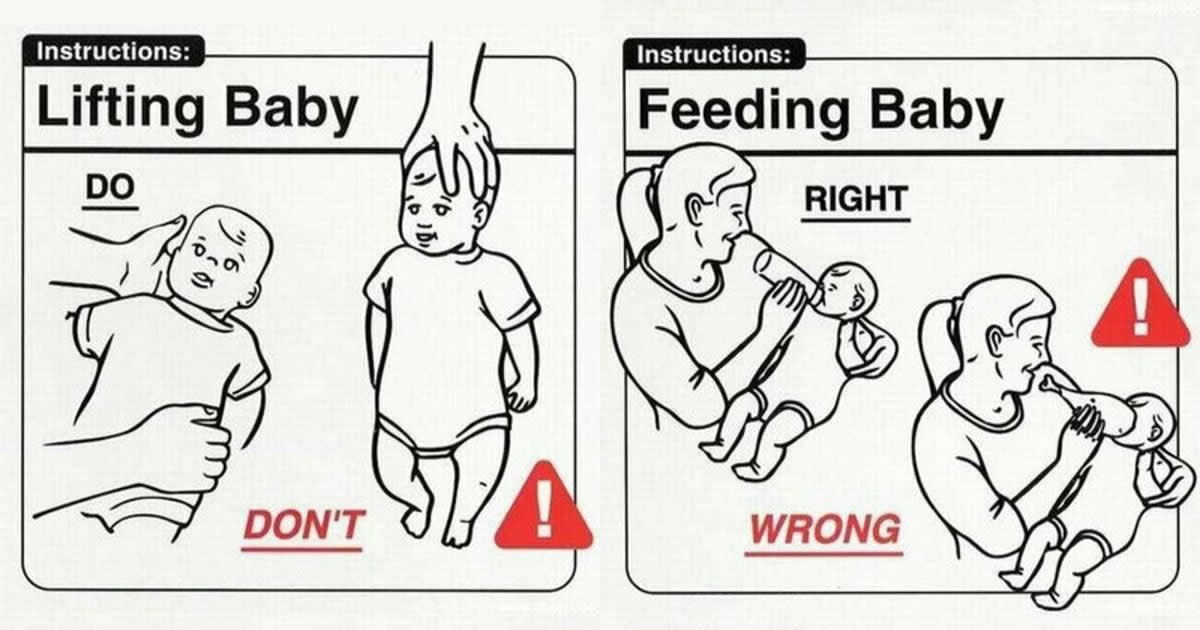 nine0003
nine0003
Certain pedagogical disturbances in the family can also easily become a source of whims. If the parents allow the child absolutely everything, and he simply does not understand the word "no", any attempt to prohibit it leads him almost to hysteria. As a rule, parents are afraid of such a reaction and are ready to do anything to avoid its repetition, which means they continue to indulge the baby. And this inevitably deepens discord in the family and makes its members even more irritable. The opposite situation can also involve the whole family in a vicious circle: they behave with the child too strictly and literally stop all attempts to act independently and make decisions. The kid protests, parents become even stricter with him. The same effect occurs if different family members adhere to diametrically opposed parenting styles - for example, mom is very strict with the baby, and dad allows absolutely everything. All these situations are best dealt with by a family psychologist. nine0003
nine0003
Struggle for independence
Parents often mistake the child's desire for independence for whims. From 8–9 months, the baby is already beginning to “test the strength” of the surrounding adults. They give him a toy, he throws it on the floor and immediately demands it back. This can be repeated many times in a row. The child finds out the boundaries of what is permitted, and when communicating with mom, dad or grandmother, the boundaries can be different. At the same time, it is quite easy to distinguish the crying of a real need from a “testing” cry: “checking”, the baby sometimes stops crying, looks around and listens in order to evaluate the effect produced. Such stops are a sign of the need for attention to oneself. This does not mean that in this case it should be ignored, it is better to talk softly with the child, give reasonable arguments, explain your actions, including the necessary refusals or prohibitions. Such verbal contact, if established at birth, makes it easier to distinguish what exactly caused unusual behavior, and to cope with the situation. nine0003
nine0003
At the age of 2–3 years, the time comes when the child literally answers everything: “I myself!”. Moreover, if attempts to do something on their own are not very successful (spilled, raked, broke, fell), the best strategy would be not to scold the baby, but to celebrate his achievements and offer to bring the matter to the end together. Often, the mere fact of recognizing the child's independent attempts to do something is already enough to live in harmony and reduce "whims" to a minimum.
Stubborn facts
- Even if the baby likes to cry in principle, certain conditions should alert parents. These are the so-called emergencies. nine0236
- The loud, pronounced cry of a child for two or more hours, in which no ordinary methods of calming help, is a signal to call a doctor. With problems such as intussusception (intestinal volvulus) or appendicitis, a young child may not have any other obvious external signs other than intense continuous crying. Only a doctor can diagnose the problem.
 It cannot be said that these cases are frequent. If a mother breastfeeds her baby and is well acquainted with the principles of introducing complementary foods, then volvulus, caused by a sharp transition to unfamiliar food in large quantities and at too early an age, does not threaten her child. Appendicitis in babies is also rare, but since the exact causes of this emergency are still unclear, it cannot be discounted. nine0236
It cannot be said that these cases are frequent. If a mother breastfeeds her baby and is well acquainted with the principles of introducing complementary foods, then volvulus, caused by a sharp transition to unfamiliar food in large quantities and at too early an age, does not threaten her child. Appendicitis in babies is also rare, but since the exact causes of this emergency are still unclear, it cannot be discounted. nine0236
Helpful Hints:
- Any inner feelings of a child (enrolling in a kindergarten or school, troubles in the family) can lead to stress. No need to try to protect the baby from difficult situations, but teach him to overcome difficulties. The kid will endure stress much easier if he knows that at home he will always be understood and supported, that for mom and dad he is the best in the world.
Your love and attention are the best "medicines" for stress. Talk with the baby, give him the opportunity to speak out, find out the reasons for the experiences.



